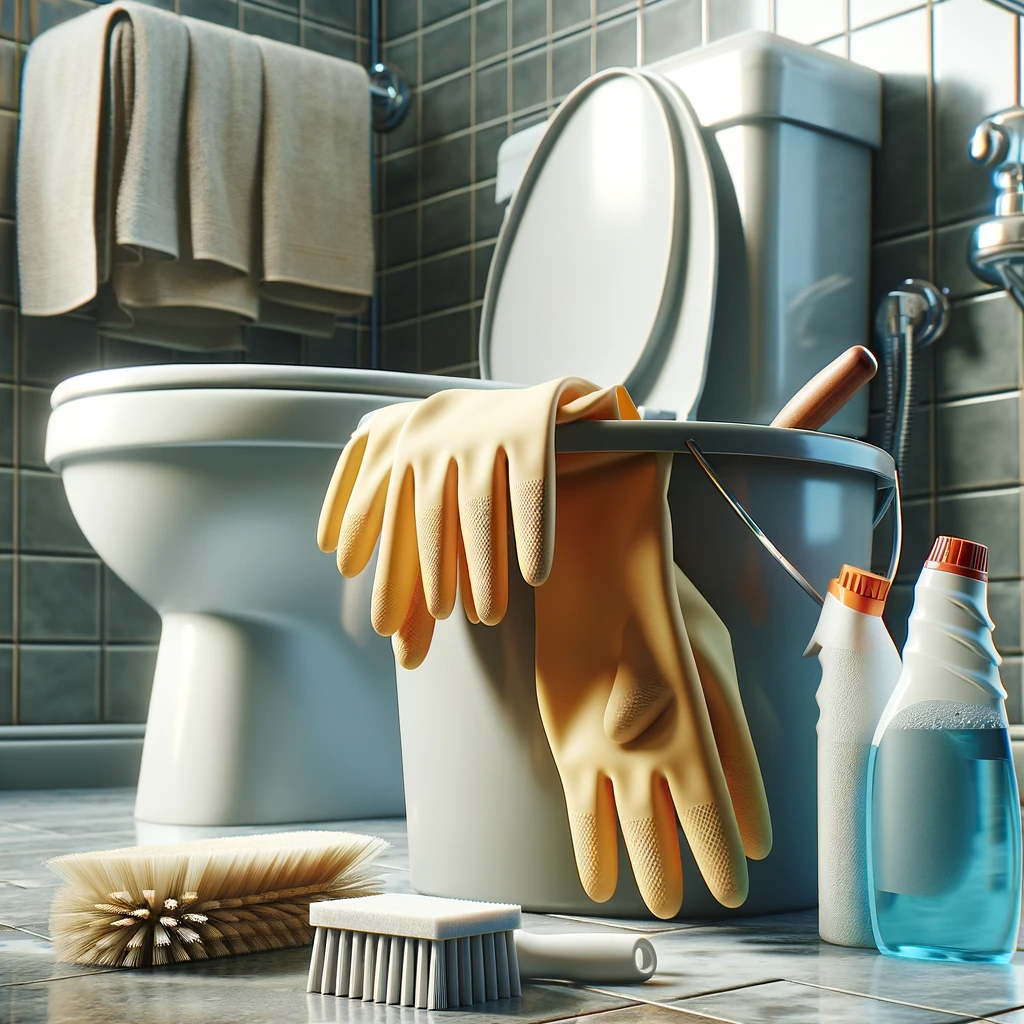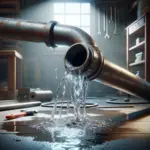In this article, we’ll explore the causes of sewage backup, give you ideas on what to do if it happens to you, and when it’s best to call a professional. We’ll also discuss the laborious and dangerous task of sewage cleanup so that you can be sure to take all the necessary precautions and stay safe!
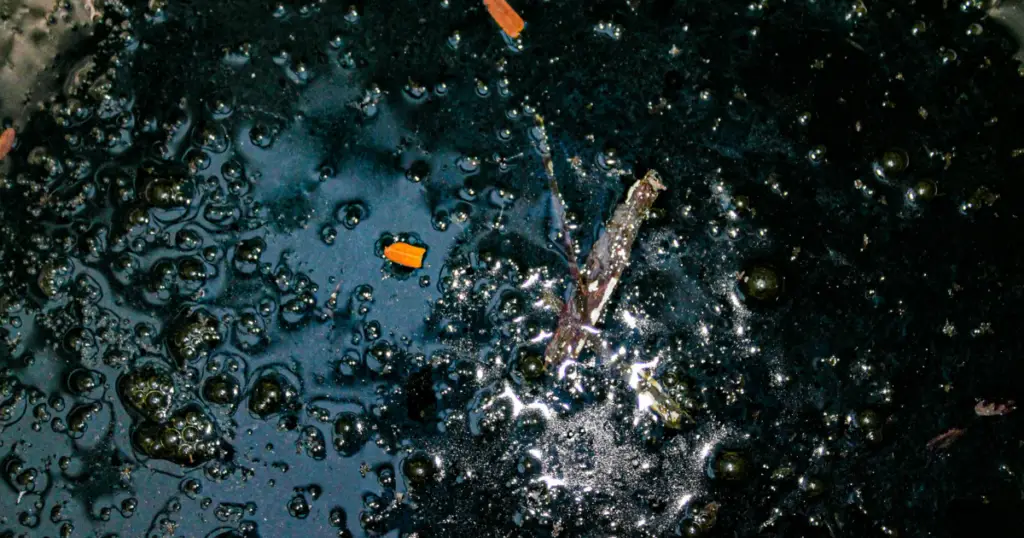
What to do immediately after a sewage backup?
The first thing to do if you experience a sewage backup is to ensure everyone’s safety. Here are the steps to take:
Access the situation
Is the sewage a result of a flood or something more localized? If it’s localized, try to locate and turn off the main shutoff valve for the water supply in your home.
Shut down electricity and gas
Shutting down electrical systems can prevent potential electrocution hazards from exposed wires. Turn off the gas if you detect strong smells of gas in the area.
Contact your insurance
Contact your insurance provider to assess the damage and take steps to properly cover the costs of sewage cleanup. Take pictures and document the damage.
Stay out of contaminated areas
Due to the many hazardous bacteria and contaminants found in sewage, you must seal off the affected area immediately and avoid entering it at all costs. Additionally, be sure to keep your children and pets away from this potentially dangerous space.
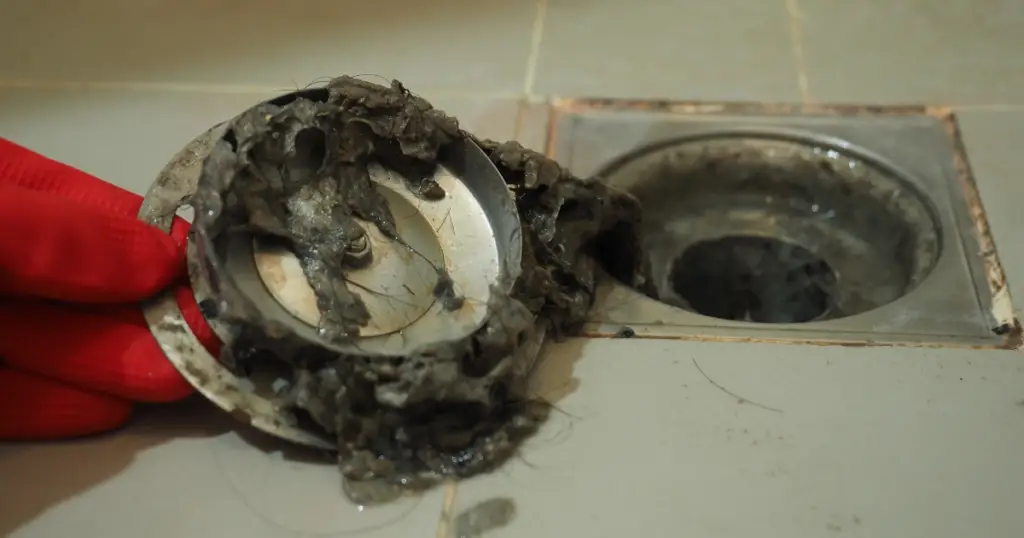
Sewage Cleanup Service
If you are dealing with a large sewage backup, it’s best to call in a professional. A qualified team of experts will come and assess the damage, provide necessary safety equipment, perform proper disposal of hazardous materials, and ensure that your home is cleaned up correctly.
Protect Yourself
If the area is not too large, you may feel compelled to tackle the cleanup yourself. If so, make sure to wear all the necessary safety gear. Wear personal protective equipment (PPE) such as gloves, boots, respirators, and overalls while cleaning up sewage waste to protect yourself from potential hazards.
Remove Standing Water
If you’re dealing with a minor sewage leak, the first step is to get rid of any standing water with a mop, towels, and/or wet vacuum. This will help dry up the area and make it easier for discarding items that were contaminated by the wastewater. But if you find yourself facing a larger issue than expected, don’t hesitate to call in professional help from an experienced sewage cleanup company.
Dispose of Contaminated Items
After removing all standing water, you should discard any furniture, carpets, and other items that were affected by the sewage spill. Anything that has been damaged by contaminated material must be discarded properly to avoid further contamination.
Clean and Disinfect
After removing all standing water, thoroughly clean and disinfect the affected area with bleach or other specialized products. Remove any porous materials such as carpets, furniture, and drywall that might have come in contact with contaminated water.
Use Fans And Dehumidifiers
Bring in fans and dehumidifiers as our next step towards restoring normalcy to your home; these devices will help move air around inside your home which will accelerate evaporation rates of liquid residues including moisture caused by seepage into walls or other structures.
Once the area is dry, you can begin to replace and repair any damaged items.
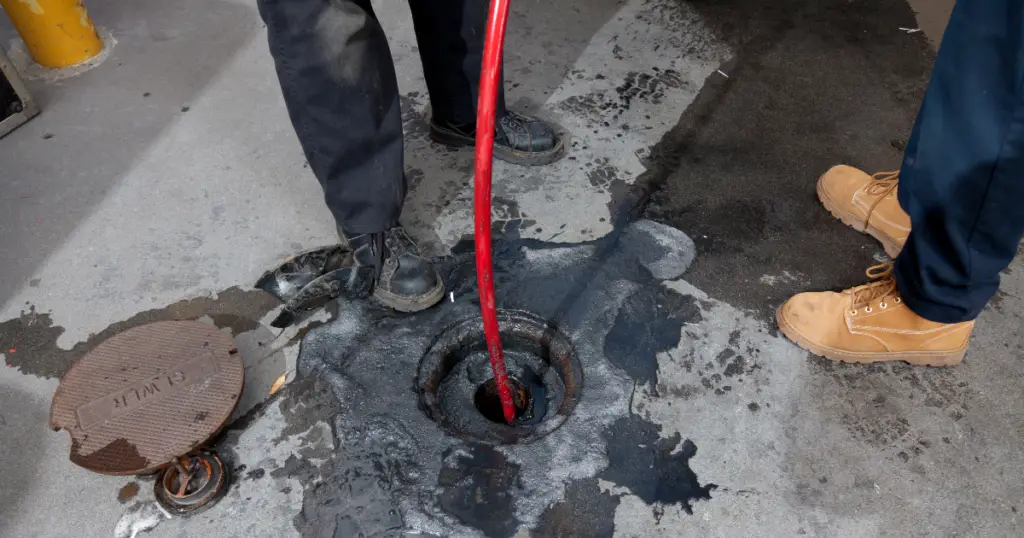
Is Sewage Backup An Emergency?
A sewage backup is an emergency and one that should be treated that way. Sewer backups can occur when pipes become clogged or damaged due to a problem in the public sewer system, septic tank drain field, or even something as simple as tree roots growing into pipes. This can result in raw sewage flowing back up through toilets, bathtubs, floor drains, and more.
The risks associated with sewage backups are extensive – aside from property damage and potential injury of those involved in the cleanup process, there are also serious sanitation issues that arise from the contamination of yard soil or water supply systems caused by dirty wastewater. Contamination caused by sewage backups can lead to the spread of bacteria, viruses, and protozoan parasites which have been linked to diseases like Typhoid fever, Hepatitis A and Salmonellosis.
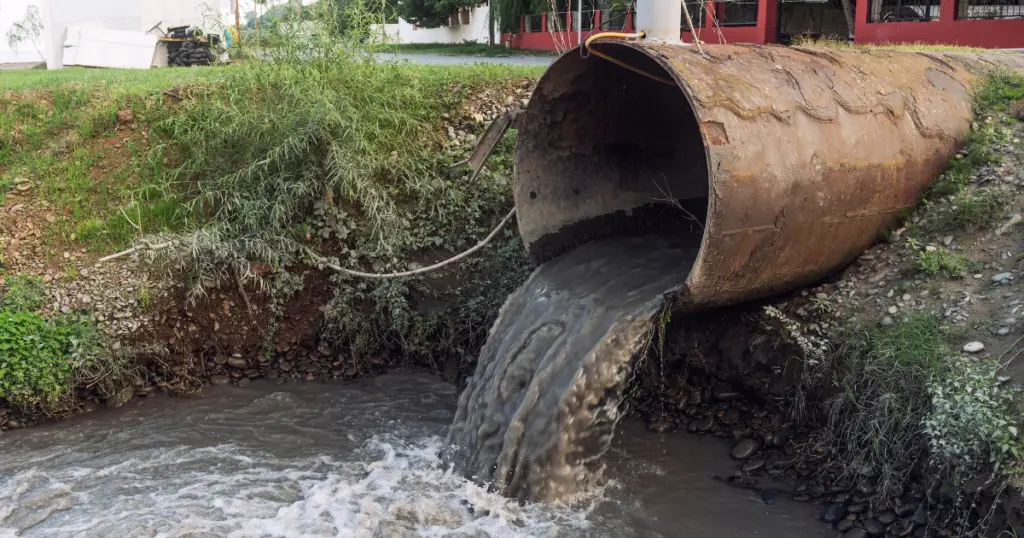
Types of Sewer Backup Water
There are three types of sewer backup water: grey water, clean water, and black water.
- Grey water contains low levels of contaminants and can be found in sewage overflow from showers and sinks.
- Clean water generally comes from broken pipes or toilet overflows with little to no contamination.
- Black water is highly contaminated and contains bacteria and other hazardous materials which require special handling for disposal.
It is important to identify the type of sewer backup water you are dealing with before attempting to clean up the mess, as it will help determine the safety precautions necessary to safely remove sewage from your premises.
When to call for professional sewage cleanup services?
Should you ever encounter a sewage backup, it’s essential to contact professional assistance. Not only do they possess the expertise to accurately evaluate the circumstances and identify their origin, but they have all of the necessary resources required for hazardous tasks like dealing with untreated waste.
Here are some factors to consider when determining if expert help is needed:
- If your sewage system has been backed up for more than 24 hours;
- If the area affected by the backup or contamination is larger than a single room or bathroom;
- If you suspect that the contamination may have reached your water supply;
- If there is any visible evidence of structural damage such as buckling walls, cracks in floors or ceilings, and other signs of distress associated with a sewage backup;
- If you smell an unpleasant odor due to the sewage – this could indicate an ongoing problem;
- Sewage spills can contain hazardous contaminants like viruses, harmful bacteria, and heavy metals that can be dangerous to people who come in contact with them;
- If you are unable to access the source of the problem on your own and need help from a qualified professional;
- If you think that someone may be in danger due to unsafe conditions caused by the sewer backup;
If you need help with the cleanup and restoration process. When in doubt, contact a professional sewage cleanup service to ensure that your home is safe and sound. They can provide essential services like sanitation, water extraction, mold remediation, air quality testing, and more.
What causes sewage backups?
Sewage backups are typically caused by blockages in the waste drainpipe. This often happens due to a buildup of debris such as:
- Toilet paper;
- Grease;
- Soap residue, and other large solid particles. That accumulates over time and eventually leads to a blocked pipe. In addition, tree roots can grow into pipes, causing a further obstruction that prevents the flow of wastewater.
Other common causes for sewage backups include improper installation or maintenance of plumbing systems, broken sewer lines, deteriorated infrastructure (such as aged pipes), and heavy rains which overload the system with more water than it can contain.
The presence of ground shifted or sinkholes in or near the property can also lead to sudden leaks in pipes or sewer lines when they come into contact with these shifting grounds.
Professional Help
For those dealing with sewage damage in their home or business, it is important to seek professional help. Sewage contamination can lead to health risks and should be removed as soon as possible.
Professional help can come in the form of water restoration services, which specialize in cleaning up after a sewer backup. These services have teams of technicians who are properly trained and equipped to handle sewage damage.
They will use specialized tools and techniques to safely remove contaminated materials, clean non-contaminated areas, restore any damaged structural parts of the property, and make sure that all safety measures are followed to ensure a healthy living/working environment.

